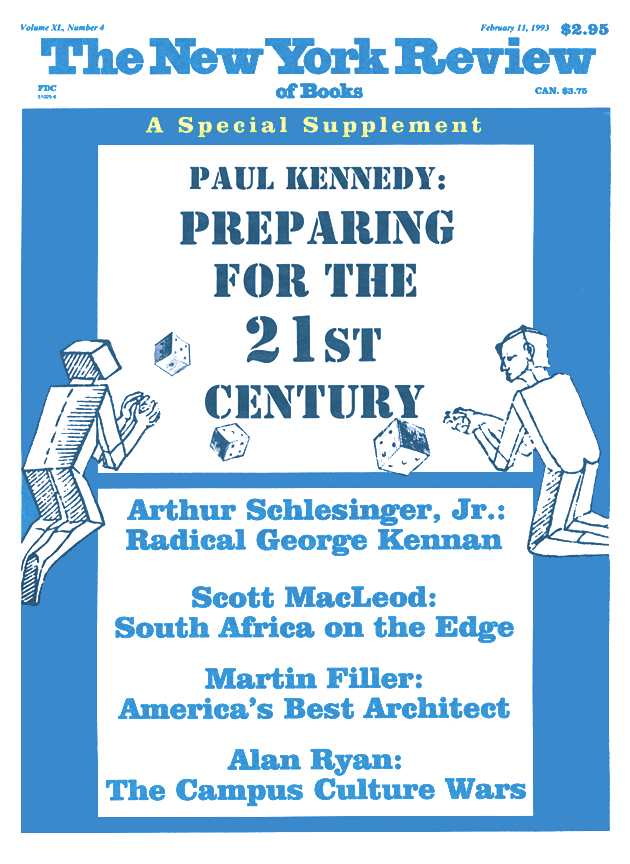In response to:
The Proconsul from the October 8, 1992 issue
To the Editors:
James Chace made several mistakes in his review of the two books about John J. McCloy in the October 8, 1992, issue.
Henry Fairlie did not coin the word “establishment” to describe “the American foreign policy establishment.” He used it first in 1954 to describe British leaders, in and out of politics, who had a major influence on the formulation of public policy in Great Britain. He reserved a special place of honor and scorn, depending on his mood at the moment, for one of its alleged leaders, Lady Violet Bonham Carter.
- It is a cheap shot by Chace to refer to Clark Clifford, when he served President Truman in the White House, as “a political fixer from St. Louis.” Clifford was a young lawyer from St. Louis, assigned initially to the White House as a naval aide. He served Mr. Truman and other Democratic presidents with distinction.
- Finally, why refer to Abe Fortas as a “Jewish lawyer from Texas”? Fortas, who actually came from Memphis, Tennessee, could just as easily have been described as a brilliant government lawyer during the New Deal who also was an accomplished violinist.
I know the point Chace was trying to make—that Presidents get foreign policy advice from a variety of individuals, but in this review, he played loose with both facts and taste.
Sander Vanocur
Washington, DC
James Chace replies:
Henry Fairlie may well have used the term “establishment” to describe British leaders, but he also used it to refer to American leaders, who had not been previously referred to as making up an “American foreign policy establishment.”
As for my description of Clark Clifford as “a political fixer,” that is precisely how he was seen when he worked for President Truman by many in Washington, including secretaries of state George Marshall and Dean Acheson. Of course, he was initially appointed as Truman’s naval aide, but he proved his value to the President by his political advice and ability to get things done. I would not have used that term to describe his relationship to presidents Kennedy and Johnson; under the latter, he served the country well as secretary of defense.
As Mr. Vanocur points out, I used the term “Jewish lawyer” to describe Abe Fortas to demonstrate that Lyndon Johnson sought advice from a wide variety of individuals, irrespective of race or religion. I regret that Fortas was identified as coming from Texas; he did indeed come from Tennessee, which only serves to underline my point that presidents seek advice from men and women who could not be described as part of any foreign policy establishment, nor, in this case, even from the political establishment of Lyndon Johnson’s home state.
This Issue
February 11, 1993


